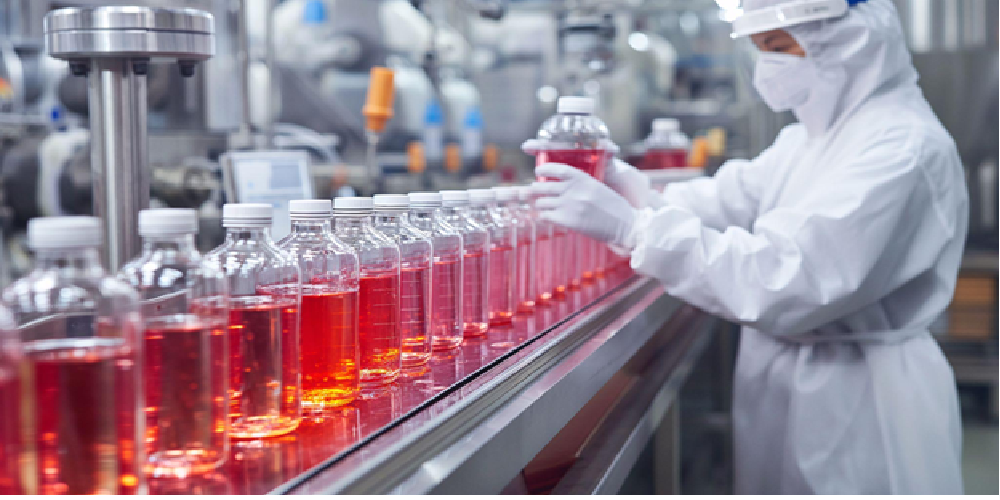In 2025, pharmaceutical companies are under intense pressure to shorten drug development timelines while navigating ever-more intricate regulatory landscapes and spiralling R&D budgets. Bringing a new medicine to market now takes on average 10–12 years, with median capitalised costs reaching approximately USD 1.3 billion per successful candidate. At the same time, the global active pharmaceutical ingredients (API) market is set to hit USD 270.53 billion this year, growing at nearly 6 percent annually as demand for both generic and specialty APIs surges. Even minor delays - whether in sourcing compliant APIs, securing DMFs, or reconciling technical specifications - can stall regulatory filings and push launch dates back by months. To overcome these bottlenecks, asset-light API distributors and specialty chemicals partners are emerging as strategic enablers. By tapping into certified global networks, delivering turnkey regulatory dossiers and stability data, and coordinating complex supply chains, these modern CDMOs help pharmaceutical teams reduce friction and accelerate time-to-market. The following sections explore the top trends reshaping API sourcing in 2025 - and how partnering with a distributor model can keep your projects on track.
Trend 1: The Rise of Asset-Light, Distributed Sourcing Models
Pharma leaders are increasingly shifting away from owning fixed-asset plants and partnering instead with specialized networks to meet surging API demand. This move delivers:
- Cost Efficiency & Agility
- Global CDMO revenues are projected at ~USD 200 billion in 2025, driven by companies outsourcing both small- and large-molecule work.
- Reduced CAPEX means teams can focus budgets on R&D and commercialization.
- Faster Scale-Up & Geographic Flexibility
- Working with an API distributor that taps into GMP-certified partners worldwide eliminates plant-commissioning delays.
- Regional access helps mitigate import/export risks and local regulatory shifts.
- Consolidated Compliance & Documentation
- Centralized collection of DMFs, stability studies, and tech packs streamlines audit readiness.
- A specialty chemicals distributor like Molkem bundles regulatory dossiers with every shipment, ensuring materials arrive “filing-ready.”
By leveraging an asset-light network, Molkem provides rapid access to documented, audit-ready APIs, intermediates, and excipients—without the risks or delays of owning your manufacturing infrastructure. This model delivers the scalability and speed pharmaceutical teams need in today’s fast-moving landscape.
Trend 2: Increasing Regulatory Complexity and the Need for Documentation Readiness
Pharma regulators worldwide are tightening requirements, creating new hurdles for API sourcing and filings. Key drivers include:
- Inspection Backlogs & Audit Pressure
- Nearly 2,000 drug-manufacturing sites remain overdue for FDA inspections - a carryover from pandemic delays - raising audit risks across supply chains.
- Regulators demand full visibility into manufacturing sites, forcing distributors to provide comprehensive traceability.
- Stricter Data Integrity Standards
- Up to one-third of abbreviated new drug applications (ANDAs) face approval delays due to data integrity issues, according to recent FDA reports.
- Even minor inconsistencies in analytical methods or stability data can trigger “complete response letters,” stalling market entry.
- Diverging Global Guidelines
- The EMA continually updates its Variation Classification Guideline, while agencies like CDSCO and NMPA introduce region-specific dossier requirements.
- Managing multiple regulatory frameworks increases the burden on in-house teams.
Molkem’s Solution: As a pharmaceutical ingredients distributor, we bundle fully vetted DMFs, stability studies, tech packs, and analytical validations with every API shipment. This “filing-ready” documentation package streamlines regulatory submissions, keeps audit trails intact, and reduces the risk of costly delays.
Trend 3: Growth of Niche and Specialty APIs
The API landscape is diversifying rapidly, with specialty APIs - especially highly potent active pharmaceutical ingredients (HPAPIs) - capturing an ever-larger share of market demand:
- Market Expansion
- The global specialty API market is estimated at USD 222.38 billion in 2025 and forecast to reach USD 322.9 billion by 2035, growing at a CAGR of 3.8 percent.
- Within this, HPAPIs are projected to account for over 67 percent of specialty API revenues this year, driven by oncology, hormonal disorder therapies, and antibody-drug conjugates.
- Drivers of Demand
- Targeted Therapies: Focus on personalized and low-dose treatments for cancer and rare diseases.
- Regulatory Scrutiny: Higher safety and efficacy standards boost the need for small-batch, high-purity production.
- Orphan & Biologic APIs: Growth in niche therapeutic segments such as peptides, oligonucleotides, and ADC precursors.
- Supply-Chain Challenges
- Small-volume runs increase per-unit costs and complicate scheduling at traditional plants.
- Complex analytical validation and stability requirements for HPAPIs can stall filings.
Molkem’s Advantage: As a specialty chemicals distributor, we source small-batch and high-value APIs through our GMP-certified network. Our turnkey approach bundles IM and tech-pack documentation, stability data, and audit-ready DMFs, enabling you to procure niche APIs without the overhead of custom manufacturing.
Trend 4: Digitalization and Data-Driven Supply Chains
Advanced digital tools are revolutionizing API sourcing and distribution:
- End-to-End Traceability
- Digital track-and-trace systems - utilizing 2D barcodes, RFID tags, and blockchain - enable real-time visibility of every batch from manufacturing partner to warehouse and beyond.
- Automated alerts for temperature excursions or transit delays ensure immediate corrective action.
- Blockchain for Provenance and Anti-Counterfeiting
- Pilot programmes have demonstrated how blockchain ledgers can authenticate drug shipments and prevent counterfeit infiltration by providing immutable, time-stamped custody records.
- Decentralized platforms reduce data silos and enhance audit readiness.
- AI-Driven Demand Forecasting
- Machine-learning models ingest historical order data, market trends, and regulatory updates to predict API demand with up to 90 percent accuracy, minimizing stock-outs and overstock risks.
- Integrated Partner Portals
- Modern distributors provide secure online dashboards where clients can track order status, download regulatory dossiers and stability reports, and initiate reorder workflows.
By embracing digitalization, a specialty chemicals distributor like Molkem offers clients unparalleled transparency, predictive planning, and streamlined compliance - transforming speculative supply chains into data-driven engines of pharmaceutical innovation.
Trend 5: Sustainability and Green Chemistry in API Sourcing
Environmental responsibility is no longer optional for pharmaceutical supply chains. In 2025, the sector accounts for roughly 4.4 percent of global greenhouse-gas emissions - surpassing even automotive manufacturing - and regulators, investors, and end-customers are demanding greener processes. Key shifts include:
- Eco-Friendly Synthetic Routes
- Adoption of water-based chemistries and biocatalysis to minimize toxic solvent use and hazardous waste.
- Case studies show continuous-flow and enzymatic processes can cut solvent consumption by up to 50 percent.
- Circular Economy & Waste Valorisation
- Initiatives to recover and reuse solvents and by-products are gaining traction.
- Green-chemistry pilots report up to 30 percent reduction in carbon footprint through solvent recycling and energy-efficient reactor design.
- Supplier Audits for Sustainability Metrics
- Pharma companies increasingly require environmental-impact data - such as E-factor and PMI - from API partners.
- Distributors must verify partner sites against sustainability KPIs and report on green-chemistry adherence.
Molkem’s Approach: As a specialty chemicals distributor, we collaborate exclusively with partners implementing green-chemistry principles - from patent-non-infringing, atom-economy routes to solvent-recovery systems - ensuring your APIs are both compliant and climate-responsible.
Trend 6: Integrated Formulation Support Beyond APIs
Pharmaceutical teams increasingly demand end-to-end solutions that bundle APIs with excipients, intermediates, and ready-to-use dosage forms. Key indicators include:
- Exploding Excipients Market
- The global pharmaceutical excipients market reached USD 11.0 billion in 2025 and is projected to grow at a 6.1 percent CAGR through 2030, driven by demand for advanced drug‚Äźdelivery systems and multifunctional excipients.
- Pellet & Granule Formulations
- Immediate-release, extended-release, and taste-masked pellets simplify downstream processing by offering pre‚Äźengineered profiles for hopper‚Äźto-tablet integration.
- Specialty Intermediates & Co-Processed Excipients
- Co-processed excipients - where functional binders and disintegrants are pre-blended - are gaining traction for high-speed tablet presses and minimizing blend variability.
- One-Stop Sourcing Models
- By combining APIs, DMF-grade excipients, intermediates, and pellet formulations in a single procurement workflow, companies eliminate multiple vendor touchpoints and consolidate documentation.
Molkem’s Edge: As a specialty chemicals distributor and API partner, we curate and coordinate all formulation inputs - from high-purity APIs and co-processed excipients to validated pellet systems - delivering comprehensive regulatory dossiers and stability data in one package. This integrated approach accelerates bench-to-batch workflows and reduces complexity for formulation teams.
What This Means for Pharma Companies
In an environment where the global API market is expected to exceed USD 270 billion in 2025, with specialty segments growing at around 3.8 percent annually, pharmaceutical companies must rethink traditional sourcing and development strategies. Relying on captive manufacturing or fragmented vendor networks can introduce costly delays, regulatory risks, and oversupply. Instead, partnering with an asset-light API and specialty chemicals distributor provides strategic agility. By leveraging turnkey regulatory dossiers, digital traceability, and green-chemistry partnerships, organizations can focus internal resources on core activities - such as formulation innovation and market differentiation - while maintaining uninterrupted supply and audit-ready compliance. Ultimately, embracing a modern distributor model is no longer optional; it’s essential for companies aiming to accelerate time-to-market, optimize cost structures, and navigate the increasingly complex global regulatory landscape.
Partner with Molkem to Accelerate Your API Pipeline
The Active Pharmaceutical Ingredients (API) market in 2025 is defined by complexity, specialization, and the pressing need for agility. Trends such as distributed sourcing, regulatory rigor, niche API growth, digitalization, sustainability, and integrated formulation support are reshaping how drugs move from concept to commercialization. Molkem stands ready as your asset-light partner - offering audited global networks, filing-ready documentation, and end-to-end coordination for APIs, intermediates, and excipients. To future-proof your API sourcing and accelerate your development cycles, contact Molkem today at +91 7961202500 or email hello@molkem.com. You can also visit our contact form.
Frequently Asked Questions
- Global Sourcing Network: Access to diverse APIs and intermediates.
- Regulatory Support: Filing-ready dossiers, DMFs, and stability studies.
- Certified Partners: WHO GMP, EU-GMP, and US FDA compliance.
- Technical Expertise: Guidance on patent-non-infringing routes and cost optimization.


 Global - English
Global - English Brazil - Portuguese
Brazil - Portuguese Thailand - Thai
Thailand - Thai Middle East - Arabic
Middle East - Arabic Vietnam - Vietnamese
Vietnam - Vietnamese Spain - Spanish
Spain - Spanish Colombia - Spanish
Colombia - Spanish Argentina - Spanish
Argentina - Spanish



